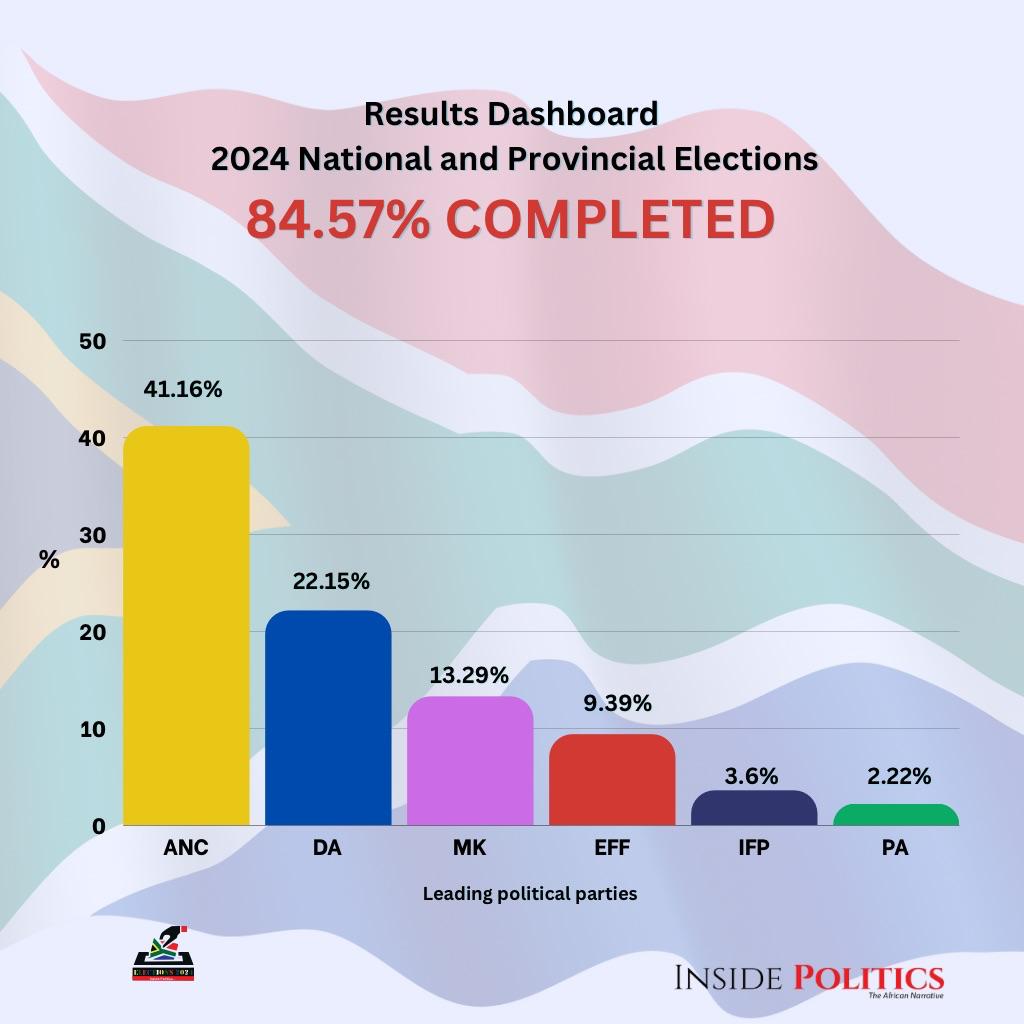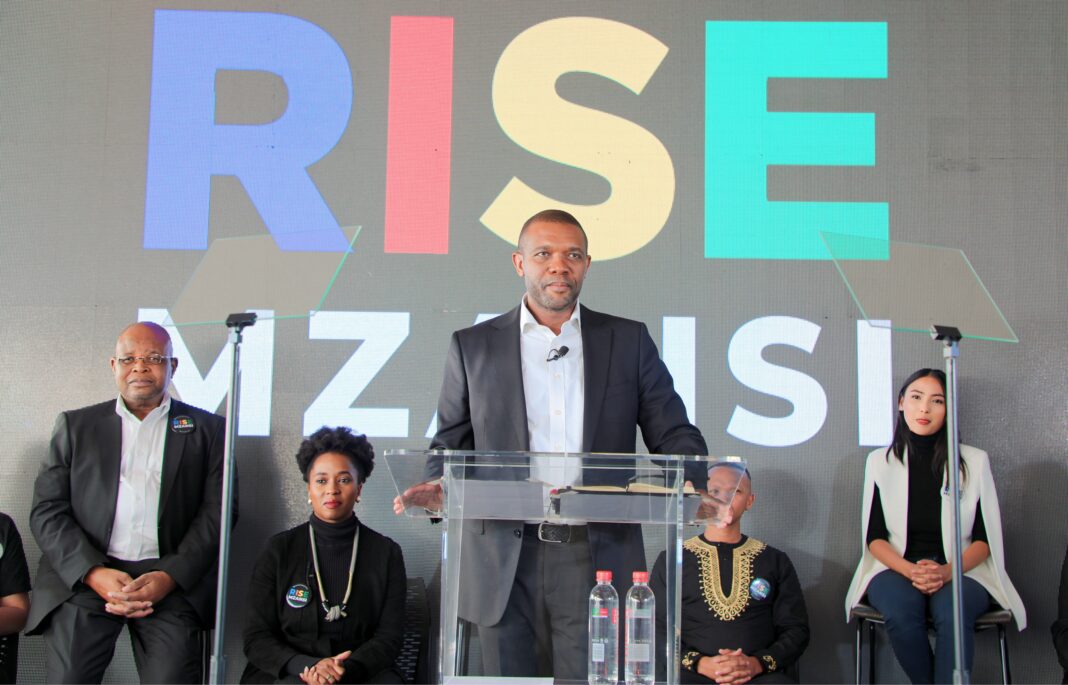Johnathan Paoli
The leader of one of the newbies – Rise Mzansi’s Songezo Zibi – while speaking on Thursday evening at the Results Operation Centre in Midrand said he remained confident that his mission to create a political landscape without the ruling party, is accomplished.
Launched at Constitution Hill, Johannesburg in April last year, by former Business Day editor and Rivonia Circle founder Zibi; the party seemed promising in its campaigning – attracting young leaders and preaching a no-nonsense, progressive message of change.
However despite not attaining the dizzy heights of political success as anticipated, Rise’s leadership has expressed the hope of achieving long term goals, culminating in the 2029 elections.

Rise Mzansi’s Gauteng provincial convener, Tebogo Moalusi, said the party was aiming to redefine the way the country understood the political landscape and said it was already looking ahead to the future.
“We want to make sure that going forward, this is just the beginning. We have by-elections that will be coming, we’ve got the local government elections in 2026, and 2029 has always been one of our big goals,” Moalusi said.
Zibi said the people have for a long time not imagined a South Africa without the ANC in power, as the majority party, as a dominant political force, and now they could.
“That’s one of the reasons we started in this election, understanding that it is a long journey, five to ten years, to success. For us, it’s important to reach a national presence. It’s important to put a score on the board,” Zibi said.
He said that it remains important to remember that the party’s main support emanated from the metropolitans and so more time was needed in order to gauge election results.
Party chief organiser Makashule Gana said he is encouraged by the party’s performance in battling voter apathy.
“That’s what encourages me. We gave hope to many South Africans, people who, if Rise Mzansi was not on the ballot, they could have decided not to vote,” Gana said, adding that theirs was an emotional journey and praised the success of the party in the short time it has existed.
He expressed his gratitude to everyone who believed in the party’s vision to build a safe and prosperous country for all in one generation and echoing remarks made by Songezo Zibi earlier this year, Gana said RM’s journey does not end here but would continue building its movement.
“For me this continues. Tomorrow we wake up and continue in this mission”.
So far nationally, the party has received 14 010 votes, 0.34% of the national ballot.
In Gauteng, it is currently holding 0.88% of the vote, 0.36% of the Western Cape, and 0.07% of kwaZulu-Natal.
But Mzansi was not alone on this lonely path. There were as many as 50 political parties contesting the 29 May National and General Elections, a large number of them formed just a few months before May, including Rise, and failed to make a cut in the list of the top 10 political parties.
There were also as many independent candidates in the mix, which is why for the first time in our history of democratic elections, we had three long ballot papers, to try and ensure everyone was accommodated.
Among the list of “they also ran” was the GOOD party formed Patricia de Lille party, Build One South Africa, Xiluva, The African Congress for Transformation (ACT) founded in August 2023 for ANC SG Ace Magashule, former SABC boss Hlaudi Motsoeneng’s African Content Movement and CCC among other parties.
However, with almost 70% of the votes having been counted, the support for de Lille’s GOOD party is dismal, getting a combined 0.23% of the national vote, 1.05% in its traditional stronghold, the Western Cape and 0.42% in the Northern Cape.
Former Democratic Alliance (DA) leader Mmusi Maimane’s Build One South Africa party, started off with optimism and hope. In a Obama-meets-Mandela-esque portrayal, the party sought to build on the personal charisma of Maimane.
However, preliminary reports seem to indicate a similar loss of any serious support from the electorate across the country.
BOSA is currently standing at 0.39% of the national vote, with 0.78% in Gauteng and 0.37% in Western Cape.
Maimane however, is philosophical about his loss saying every party counted in the South African system and that proportional representation could work to facilitate smaller constituencies into the fold.
“What I can say is that post these elections, there will be an amalgamation of parties. What we know is that each party will bring everyone together and work towards the future of this country,” Maimane said.
Xiluva was founded by former Midvaal Mayor Bongani Baloyi in March last year and the party held high hopes that it would receive a decent number of votes.
Currently sitting at 0.2% of the national ballot, their support does not go above that number in any of the provinces.
Despite the shockingly low count, the party seemed to have maintained a happy face.
“We, as Xiluva, would like to extend our sincere gratitude and say thank you to all who took their time and went out to vote yesterday. Thank you for entrusting us with your vote. Now, we wait for the final count and announcement,” Baloyi said.
INSIDE POLITICS

